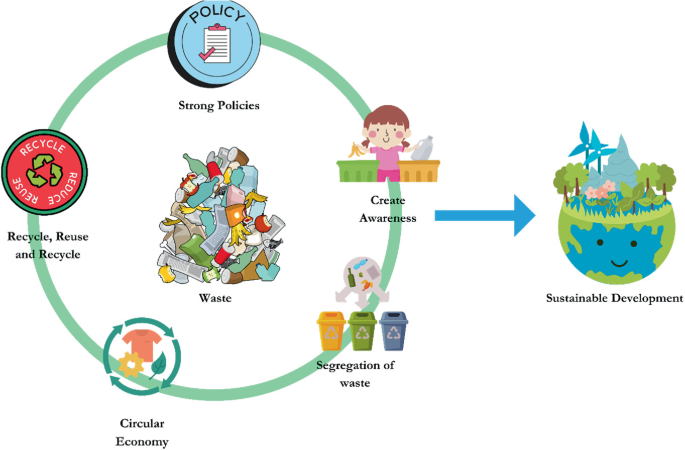Reclaim Waste Things To Know Before You Buy
Facts About Reclaim Waste Revealed
Table of ContentsThe 7-Second Trick For Reclaim WasteMore About Reclaim WasteThe 7-Second Trick For Reclaim WasteThe Of Reclaim WasteReclaim Waste - The Facts
Through proper fluid waste administration, companies can minimize energy-intensive therapy procedures and disposal expenses. By adhering to a system for taking care of fluid waste, firms can stay clear of expensive penalties and charges and stay clear of unfavorable promotion.(http://www.place123.net/place/reclaim-waste-laverton-north-vic-australia)Gather depictive examples from numerous points within the waste stream to make sure precision. Fluid waste, particularly harmful ones, presents substantial threats throughout this action.

Disinfection (e.g., chlorination, ultraviolet light, ozonation) and nutrient removal (e.g., denitrification and phosphorus elimination) are recommended under stringent regulations. Various companies violated numerous liquid waste disposal regulations in current years.
The smart Trick of Reclaim Waste That Nobody is Discussing

are utilized by sectors that create huge quantities of low-toxicity liquid waste. Superficial containers consist of fluid waste that is enabled to vaporize via all-natural processes. The residue left can be gotten rid of in land fills. includes burning liquid waste at high temperatures and transforming it right into gas and ash. This kind of disposal is subject to stringent ecological regulations due to potentially unsafe discharges.
The findings must be recorded, analyzed, and kept not simply for entry to regulative authorities however also for making improvements in the future. Share info with relevant stakeholders (e.g., staff members, governing government companies, and close-by neighborhoods) to keep transparency and liability.
Comprehending these can assist them successfully handle their operations and minimize their ecological impact. Firms that can not invest in centers need to consider teaming up with the public market for far better solutions.
What Does Reclaim Waste Mean?
By implementing comprehensive monitoring systems that include treatment and reusing strategies, regular surveillance, threat assessments, and adherence to regional and federal laws, commercial facilities can contribute to the security of groundwater supplies, ensuring their availability for future generations (liquid waste removal melbourne). Allow's delve right into the importance of efficient liquid waste management in the industrial market, concentrating on its effects for look at this now protecting groundwater sources
The air pollution of groundwater sources due to inappropriate liquid waste monitoring in the industrial sector has significant repercussions for human health, farming, and the setting as a whole. Some of the possible influences brought on by such air pollution consist of: Contaminated Drinking Water Supplies: As groundwater provides a significant section of our drinking water, air pollution from industrial tasks can result in dangerous chemicals and bacteria entering our water systems, posturing health risks for humans.
Lowered Agricultural Performance: Farming depends greatly on groundwater for watering; therefore, contaminated water can hinder plant returns, contaminate farming items, and impact food safety. Provided the importance of preserving groundwater resources, it is important for services to take a positive position in managing their fluid waste properly and avoiding air pollution.
Indicators on Reclaim Waste You Should Know
Fluid waste can contaminate land and pollute waters. Under the Defense of the Atmosphere Operations Act 1997, companies that generate fluid waste are required to handle it in a means that protects the environment and the neighborhood. Info concerning handling and saving fluid waste, responding to spills and lowering fluid waste is offered in the following fact sheets and guidance:.
Water, the essence of life, is under consistent threat from contamination. The duty of waste management specialists in securing this precious source can not be overstated. Their solutions consist of: Septic system and grease catch cleaning: Crucial for protecting against damaging toxins from entering our water systems. Polluted water and polluted effluent administration: Making certain that hazardous fluids are securely gotten rid of and dealt with prior to they can harm our water sources.
Therefore, integrating lasting fluid waste management into economic preparation improves economic security and safeguards the atmosphere, demonstrating the value of this approach. In final thought, embracing expert liquid waste administration methods is crucial for guaranteeing a sustainable future, securing our setting and protecting the health of future generations.
When it pertains to disposing of waste, adhering to correct procedures is essential for a wide variety of reasons. Appropriate garbage disposal is not practically tidiness; it has to do with ensuring the wellness of our environment, health and wellness, and the reliable use resources. Comprehending the value of effective waste administration can help all of us contribute to a much healthier, cleaner earth.
Not known Factual Statements About Reclaim Waste
Efficient waste monitoring aids preserve tidy roads and public areas, minimizing the visual influence of litter and making sure that waste does not hurt wild animals. When waste is not gotten rid of effectively, it can result in pollution, where harmful compounds can seep right into the dirt, water systems, and the air, creating long-term ecological issues.